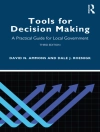This book offers a novel contribution to the study of post-Cold War European defence. Interdisciplinary in approach, it uses European law to assess the utility of existing theoretical accounts. By exploring the balance of threat theory, it provides new insights into the forces driving and hindering European defence cooperation.
قائمة المحتويات
List of Tables Acknowledgments List of Abbreviations Introduction: Why EU Law and IR Theory? Uncovering the Scope of European Defence Cooperation 1. Mapping European Defence Cooperation: Patterns of Competition and Complementarity in European Defence Cooperation 2. The Context of European Defence Cooperation: Changing Security Threats and the Emergence of Military Isomorphism in post-Cold War Europe 3. NATO in the post-Cold War Era: Developing the Capacity to Deploy Expeditionary Force Across the Conflict Spectrum 4. Defence Procurement Initiatives in post-Cold War Europe 5. Force Generation Initiatives in post-Cold War Europe 6. CSDP: The Growth of European Military Autonomy 7. Helsinki to Lisbon: Furnishing the EU with the Institutional Structures and Military Capabilities for Defence Autonomy 8. NATO and CSDP: Competition and Complementarity 9. Missing Pieces of the Puzzle: Institutional and Military Capability Gaps in CSDP 10. The Legal Underpinnings of European Defence Cooperation 11. Introduction 12. Historical Context 13. The Legal Framework of CSDP 14. The ESDP Prior to the Treaty of Lisbon 15. The CSDP and the Treaty of Lisbon 16. The Lisbon Treaty’s Mutual Assistance Clause 17. The Lisbon Treaty’s Flexibility Provisions 18. The Institutional Architecture of CSDP 19. The High Representative for Foreign Affairs and Security Policy 20. The CJEU and the Overlap Between Security and Other EU Policies 21. CSDP: Still an Intergovernmental Affair 22. The Application of EU Law in Defence Collaboration and Armament Procurement: Towards a More Systematic and Institutionalised Form of Cooperation 23. A State-Centric Defence Equipment Market 24. The EU’s Defence Equipment Policy ‘Package’ 25. The Interpretation of the Exception System under Article 346 TEU 26. The Defence Procurement Directive 2009/81/EC 27. Directive 2009/43 on intra-EU Transfers of Defence Products 28. EU Capability Procurement Initiatives 29. The European Defence Agency 30. Collaborative Procurement Frameworks outside the EU Framework 31. Joint Organisation for Armaments Cooperation (OCCAR) 32. NATO Capability Procurement Initiatives 33. Defence Procurement Initiatives Outside EU/NATO Frameworks 34. The Letter of Intent 35. Conclusion 36. Theoretical Contestation on the Drivers and Destination of European Defence Cooperation 37. Constructivism and European Defence Cooperation 38. Towards a European Strategic Culture? 39. Governance and European Defence Cooperation 40. The Europeanisation of National Defence Policies? 41. Liberal Intergovernmentalism and European Defence Cooperation 42. Two Level Games Theory and European Defence Cooperation 43. Institutionalism and European Defence Cooperation 44. Classical Realism and European Defence Cooperation 45. The Neglect of Material Power in the Study of European Defence: Neorealism as a ‘Straw Man’ 46. Explaining European Defence Cooperation: Neorealism and The Contradictory Imperatives of the International System 47. The Core Premises of Neorealism: Consensus and Contestation in Neorealist Thought 48. Europe in the post-Cold War Era: Systemic Unipolarity and Regional Balanced Multipolarity 49. European Defence Cooperation as Reformed Bandwagoning 50. Understanding Differentiation in Defence: Variance in External Vulnerability and the Trade off Between Abandonment and Entrapment 51. France: Vulnerability to German Power and the Legacy of Empire 52. The UK: Dependency on US Power for Global Influence 53. Germany: The Vulnerabilities of Semi-Sovereignty and the European Mittellage 54. Conclusions: The Destination of European Defence Cooperation 55. The Lessons for European Defence: Enduring Uncertainty and the Limits to the Scope and Depth of Cooperation 56. Avenues for Future Theoretical Research: Deepening Our Understanding of Systemic Variables in Defence Cooperation 57. Theorising the Role of Domestic-Level Variables in European Defence Cooperation 58. Future Research Directions for Legal and I/R Scholarship on Eur
عن المؤلف
Tom Dyson is a Lecturer at the Department of Politics and International Relations, Royal Holloway, University of London, UK. He is the author of
The Politics of German Defence and Security (2007) and
Neoclassical Realism and Defence Reform in Post-Cold War Europe (Palgrave Macmillan, 2010). Dyson has also published articles on British, French and German defence and security policies in the
British Journal of Politics and International Relations;
Contemporary British History;
Contemporary Security Policy;
Defence Studies;
European Security;
German Politics and
Security Studies.
Theodore Konstadinides is a Lecturer in European Law at the University of Surrey, UK and visiting Fellow at the Institute of Advanced Legal Studies in London. His research focuses on EU constitutional law, especially the shift of sovereign-sensitive policy areas from the periphery towards the centre of the EU constitutional framework. His most recent publications include Constitutional Identity as a Shield and as a Sword (2011) and Destroying democracy on the ground of defending it?’ (2011). He is a founding member of the Surrey European Law Unit.












